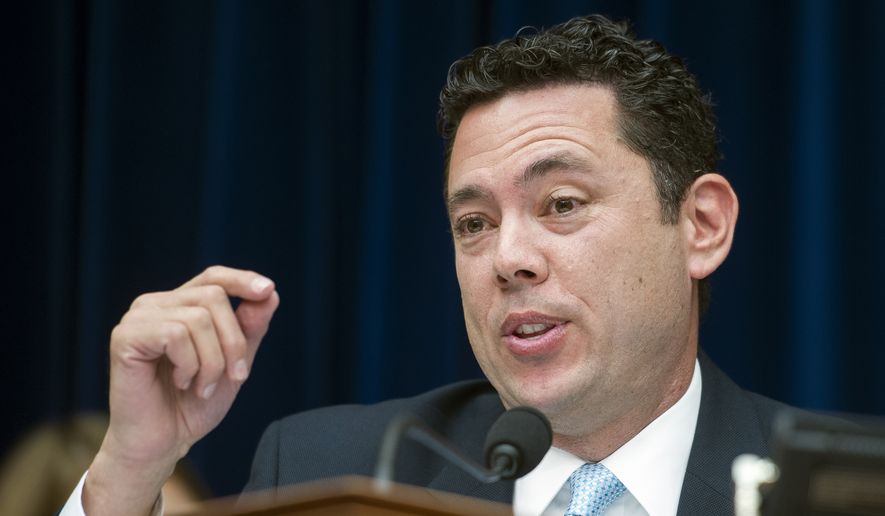Federal law enforcement officers are concerned that the Office of Personnel Management’s security “blunder” has made cops, sheriffs and agents vulnerable to attacks by those who oppose police enforcement and terrorists.
Those officers are now asking the Obama administration to provide them with better protection by creating a separate database to shield their critical information.
“Action must be taken to protect these federal law enforcement officers and their families,” stated a Federal Law Enforcement Officers Association memo dated Tuesday. “Lifetime credit monitoring needs to be provided for the victims of this breach. Additionally, to remedy this gross incompetence, OPM must implement new preventative measures and should move background investigations back under the FBI and install a separate database for officers and their families and those with security clearances.”
But that may prove to be a pricey endeavor.
The cost of creating a separate database inside an existing database could range from $25,000 to $250,000, depending on the size and type of system used by the Office of Personnel Management, said Keith Alsheimer, chief marketing officer for EnterpriseDB, an open source database provider that works with various government agencies.
Still, the administration must protect officers given that the stolen information could be used “in any number of detrimental ways” to threaten victims of the data breach, according to the memo, which called OPM’s response to the breach “lazy” and “unprofessional” and “left officers to question what the agency is doing virtually and physically to protect them.”
The same day the memo was drawn up, Federal Law Enforcement Officers Association President Jon Adler said in a letter to Office of Personnel Management Director Katherine Archuleta that the agency “turned its back” on officers with the “inexcusable breach” when it failed to protect sensitive information.
Now, the lives of those federal law enforcement officers, known as LEOs, and their families are in danger of being attacked by criminals and terrorists because of the “abysmal failure,” Mr. Adler said.
“If one LEO or a family member is harmed or killed, OPM will have blood on their hands,” he said.
The association represents more than 65 federal agencies and over 28,000 current and retired federal law enforcement officers.
OPM didn’t immediately respond to an inquiry on whether it would consider creating a separate database to further shield the personal information of law enforcement officers.
State and local law enforcement officers are worried that the agency’s inability to fend off the vicious cyberattack is a prelude to a future in which supporters of the Islamic State, also known as ISIS, has access to the stolen federal records and are able to use them to track down officers, said John Thompson, deputy executive director of the National Sheriffs’ Association.
“There is a lot of data within OPM on state and local law enforcement, and we sure do not want this — with the recent wave of attacks on law enforcement and ISIS’ ability to use social media — to get to some of the local individuals that are mentally ill and avengers of justice after law enforcement.”
The National Sheriffs’ Association represents 3,081 sheriffs nationwide and has more than 20,000 members.
On Tuesday, lawmakers were told the Obama administration’s chief human resources officer ignored warnings to shut down the very computer systems that hackers would use to steal the most personal information of millions of federal employees, leaving lawmakers stunned at the gaps in cybersecurity.
“It stinks. It doesn’t work,” said House Oversight and Government Reform Committee Chairman Jason Chaffetz, Utah Republican.
Despite the massive cyberattacks, President Obama still has confidence in Ms. Archuleta, the White House said Wednesday.
“The president does have confidence that she’s the right person for that job,” said White House press secretary Josh Earnest.
Mr. Earnest said that when she took the job, Ms. Archuleta identified as “one of her first priorities” the upgrading of the office’s computer networks. It was during that upgrade in April that officials discovered a massive breach of sensitive personnel data, thought to have been stolen by agents of China.
Since the breach became public, Mr. Earnest said, several senior White House officials “have been in touch” with Ms. Archuleta and other top managers at OPM.
If Ms. Archuleta is going to stay in charge, then she needs to answer some serious questions so law enforcement officers feel comfortable that she can adequately protect their personal information, Mr. Adler said.
Officers would like to know how much of their information was exposed, Mr. Adler said.
“It’s been five months since the data theft and over a month since it was discovered, yet OPM has not disclosed the specifics on the information stolen,” the law enforcement memo said. “They have yet to advise on remedies or controls to prevent future hacks, and this inattentiveness to national security is a blatant disregard for the safety and security of millions of Americans.”
Additionally, officers would like OPM to overhaul its security system and provide long-term protection to those who have been endangered by the data breach, which should include lifetime credit and other monitoring to detect and prevent attacks by criminals and terrorists. Meanwhile, the FBI and other external authorities should be launching a full investigation into the cyberhack and file criminal charges, if necessary.
The FBI has been working with various federal agencies to investigate the breach since it was discovered.
“We take all potential threats to public- and private-sector systems seriously, and will continue to investigate and hold accountable those who pose a threat in cyberspace,” said FBI Supervisory Special Agent Joshua Campbell.
• Maggie Ybarra can be reached at mybarra@washingtontimes.com.




Please read our comment policy before commenting.